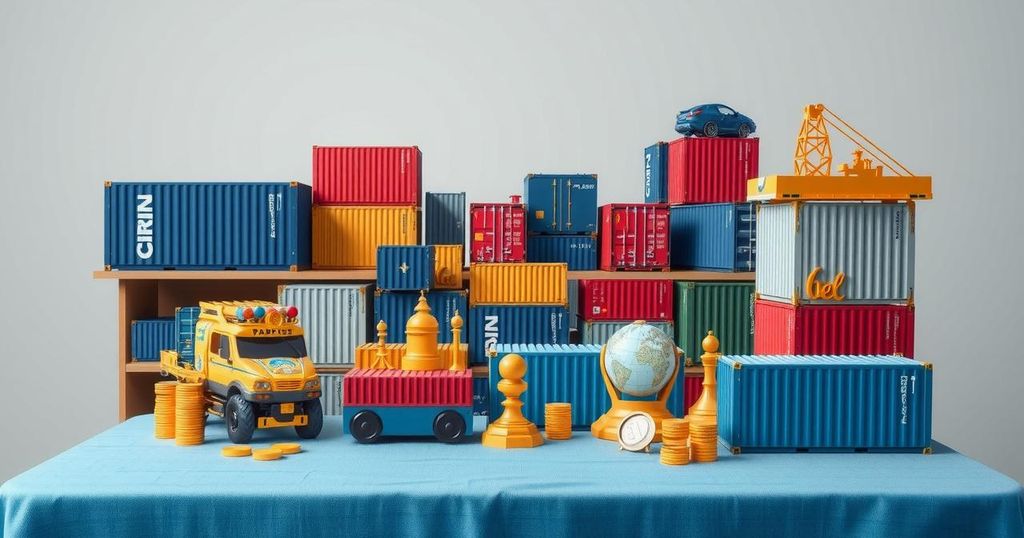Tariffs, Trade, and Immigration: Key Focus Areas for Trump-Modi Talks

Prime Minister Narendra Modi’s meeting with President Trump will prioritize discussions on trade, tariffs, and immigration issues, reflecting the transactional nature of the US-India relationship. Their established rapport may help navigate complex negotiations regarding tariffs, American oil imports, and technology cooperation while addressing regional foreign policy concerns.
During Indian Prime Minister Narendra Modi’s upcoming visit to Washington to meet President Donald Trump, discussions will mainly focus on trade, tariffs, and visa policies. Despite their strong personal rapport, characterized by shared laughs and high-profile public appearances since 2017, this meeting will also tackle the transactional aspects of the US-India relationship. Key topics will include potential tariff reductions, trade deficits, and the return of undocumented Indian immigrants.
India has begun taking steps to lower tariffs and has repatriated some undocumented Indians to align with Trump’s expectations. As the US-India trade deficit has reached approximately $46 billion, additional tariff reductions may be discussed to address this concern. Modi might propose negotiating a bilateral economic partnership agreement aimed at benefiting both nations in terms of tariff easing.
Alongside trade discussions, Trump may urge Modi to repatriate more undocumented Indians, with estimates suggesting over 700,000 individuals currently reside in the US. This sensitive topic has been met with caution by Delhi, particularly amid concerns regarding the treatment of deported Indian nationals. Additionally, Trump could push for India to increase its imports of American oil.
With the rise of Russian oil imports, India may negotiate buying US oil based on price competitiveness. Modi could also advocate for US investments in India’s nuclear energy sector, as New Delhi seeks to diversify its energy mix to meet renewable targets by 2030.
Technological collaboration is another area of focus, especially following the recent implementation of the Initiative on Critical and Emerging Technologies (iCET). This initiative, aimed at strengthening US-India ties, may lead Modi to seek commitments from Trump regarding ongoing cooperation in technology sectors. Furthermore, the H-1B visa regime is likely to be discussed, as it greatly affects Indian tech workers in the US.
Regional and foreign policy issues, including developments in Iran and conflicts in Ukraine and Gaza, may arise during talks as well. Modi’s strategic partnerships in Asia, along with India’s relationships with both Iran and Russia, could position him as a potential mediator, should conditions permit.
Despite complex discussions, both leaders aim to maintain a positive atmosphere, particularly concerning the Indo-Pacific Quad, which includes the US, India, Japan, and Australia. Modi might extend an invitation for Trump to participate in the upcoming Quad meeting in India, further solidifying their partnership beyond mere transactional dynamics.
The upcoming meeting between Modi and Trump highlights the importance of trade, tariffs, and visas in strengthening US-India relations. While establishing a positive rapport remains crucial, both leaders face complex issues such as trade deficits, undocumented immigration, and energy imports. The discussions are expected to shape future bilateral agreements and further their strategic partnership amidst broader geopolitical concerns.
Original Source: www.bbc.com





